Church of Panayias Phaneromenis
Church of Panayias Phaneromenis – Nicosia, Cyprus Overview The Church of Panayias Phaneromenis is one of the most historically and spiritually significant landmarks in Nicosia, Cyprus. Situated
Popularly known as the city of a hundred spires, Prague is one of the best-preserved cities in Europe and boasts of historic squares and enchanting bridges. Prague is considered equivalent to Paris when it comes to beauty. Whether you are a wanderer, historian, art lover, or foodie, you’ll love everything Prague has to offer and we hope this Prague travel guide will help you plan your trip!
Summer in Prague is hot with heavy thunderstorms. Winter is freezing. The best time to head to Prague is spring (April to May) or fall (September to October) when the weather is pleasant. Spring brings additional beauty to the city with magnolia flowers blossoming everywhere. Fall mostly has long warm days, giving you enough opportunities to move around till late evenings. However, if you visit during the wintertime (November to January), you will have the city with sights glazed under the thick layers of snow all to yourself as it has lesser crowds.
Prague proper is divided into 10 areas. The area known as Prague 1 is where most major tourism locations are located, and is ideal for those wanting to stay near these sites. This is also where most establishments are located.
Stare Mesto & Josefov – This is the best area for first-timers as it’s right in the old town and near all the main things to see in Prague. There is also a lot of nightlife going on so if you want some quieter this probably isn’t the best place. It will also be a little more expensive than other parts of the city.
Nove Mesto & Vyšehrad – Nove Mesto actually just means New Town. In this context, the word “New” doesn’t actually signify new. This area of Prague dates back to the 14th century. It is largely level, easy to navigate on foot, and well connected to trams and the subway. There is a lot to see in Nove Mesto, as well as a wide variety of cafes, pubs, Eat and Drinks, and shops.
Vinohrady- If you are looking for an alternative to the two popular neighborhoods above then Vinohrady might be the spot for you. Vinohrady is a quiet neighborhood in the middle of the city with streets surrounded by trees. The district is popular with Prague’s international community since it is full of eateries, bars, and cafés.
By Foot Prague is a walkable city, especially in the old town. Put on comfortable walking shoes as the streets are cobbled.
By Tram The tram system in the heart of Prague is first-rate, and once you are in the historical area, we advise you to use it to get from top attractions to top attractions so you may see as much as possible.
By Metro There are now only three lines in Prague: the A (green line), the B (yellow line), and the C (blue line) (red line). At transfer stations referred to as Florenc, Muzeum, and Mustek, you can switch between the lines.
By Funicular Try the funicular which runs from Ujezd street in the Lesser Town to the top of Petrin Hill.
By Bus The city center of Prague is not a particularly handy place to travel by bus, and we don’t think normal tourists need to use bus lines at all.
Money
Hotels and Eat and Drinks
Health & Safety
On a Budget
Mid-Range
Luxury
Church of Panayias Phaneromenis – Nicosia, Cyprus Overview The Church of Panayias Phaneromenis is one of the most historically and spiritually significant landmarks in Nicosia, Cyprus. Situated

Lefkoşa Municipality Touristic Train – North Nicosia, Cyprus Overview The Lefkoşa Municipality Touristic Train is one of the most charming and accessible ways to explore the northern
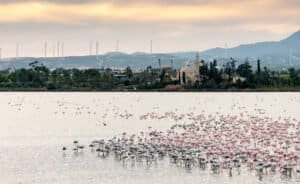
Flamingo Observatory – Larnaca Salt Lake, Cyprus Overview The Flamingo Observatory at the Larnaca Salt Lake offers one of the most spectacular wildlife-viewing experiences in Cyprus. Located

Larnaca Salt Lake – Larnaka, Cyprus Overview The Larnaca Salt Lake (Alyki Larnakas) is one of Cyprus’s most captivating natural landmarks — a vast shimmering expanse that

Antiquities such as art & pottery displayed in a military structure dating back to the 12th century. Larnaka Medieval Fort – Larnaka, Cyprus Overview The Larnaka Medieval
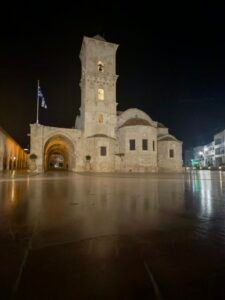
Old Quarter (Skala) – Larnaka, Cyprus Overview The Old Quarter of Larnaka, known locally as Skala, is a charming seaside neighborhood where Cyprus’s past and present blend

Lefkoşa Municipality Touristic Train – North Nicosia, Cyprus Overview The Lefkoşa Municipality Touristic Train is one of the most charming and accessible ways to explore the northern
Fanous Lebanese Restaurant – Nicosia, Cyprus Overview Fanous Lebanese Restaurant is a modern Lebanese dining spot located in the Laiki Yitonia (Old Town) area of Nicosia on

Larnaca Salt Lake – Larnaka, Cyprus Overview The Larnaca Salt Lake (Alyki Larnakas) is one of Cyprus’s most captivating natural landmarks — a vast shimmering expanse that

Psinesai – Larnaca, Cyprus Overview Psinesai (Greek: Ψήνεσαι) is a popular local grill and souvlaki spot in the heart of Larnaca. Known for generous portions, straightforward flavors,
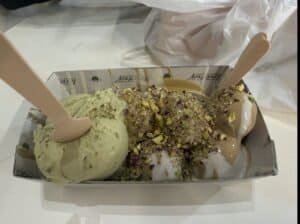
Lokmakos – Larnaca, Cyprus Overview Lokmakos is a dessert café in Larnaca that revives the traditional Greek/Cypriot treat known as loukoumades (fried dough balls) with modern flair.
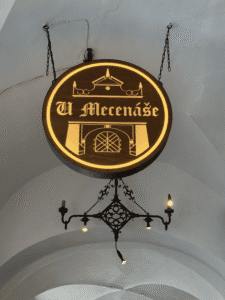
Restaurace U Mecenáše – Prague, Czech Republic Overview Restaurace U Mecenáše (literally “The Maecenas Restaurant”) is a historic Czech restaurant located at Malostranské náměstí 10 in Prague’s

Lefkoşa Municipality Touristic Train – North Nicosia, Cyprus Overview The Lefkoşa Municipality Touristic Train is one of the most charming and accessible ways to explore the northern

Larnaca Salt Lake – Larnaka, Cyprus Overview The Larnaca Salt Lake (Alyki Larnakas) is one of Cyprus’s most captivating natural landmarks — a vast shimmering expanse that
Storfjord Hotel – Glomset, Norway Overview Storfjord Hotel is a secluded luxury hideaway perched above the fjords of western Norway. Handcrafted from timber in the style of
Oaxaca Free Walking Tour (Yellow Umbrella) – Oaxaca City, Mexico The Oaxaca Free Walking Tour, recognized by its iconic yellow umbrella, is one of the best ways
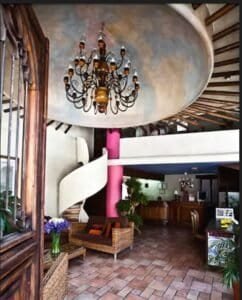
Hotel Trébol – Oaxaca, Mexico Overview Hotel Trébol is one of Oaxaca City’s most beloved boutique hotels, offering a warm, authentic atmosphere just steps from the iconic
Zion Guru – Narrows, eBikes & Tours – Springdale, Utah Overview Zion Guru is a premier outfitter and tour company located just outside the gates of Zion
You are't logged in
• Create Travel Plans/Trips
• Collect Places You've Been
• Connect with Like-Minded Travelers
• Contribute to the Community by Posting New Recommendations
Already Registered? Login.
